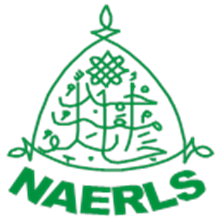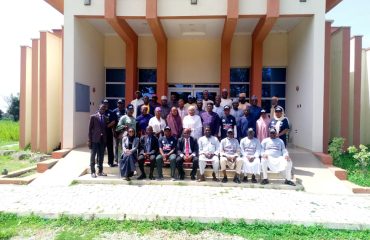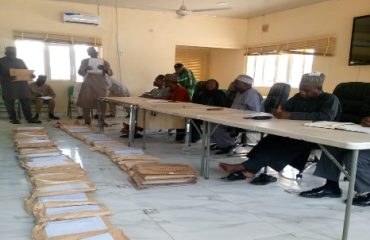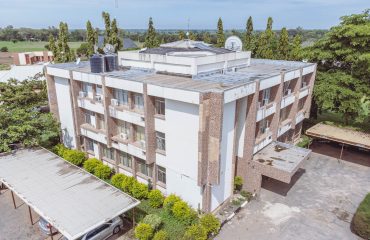The Director of National Agricultural Extension and Research Liaison Services (NAERLS), Professor Mohammed Khalid Othman has stated that, for Nigeria to forge ahead in its in achieving enhanced agricultural productivity and food security objectives especially among small-scale farmers, partnership and collaboration among stakeholders must be considered as key ingredient. He said this while receiving a delegation of Association of Small-Scale Agro Producers in Nigeria (ASSAPIN), who came on a 2-day learning exchange visit to the institute in Zaria, on 8 and 9 June 2017. ASSAPIN is an incorporated non-government organization specifically implementing the project ‘advocacy for increased public investment in innovative methods to enhance productivity of smallholder farmers in Nigeria,’ with funding support from Trust Africa.
Indeed, one key challenge of small-scale farmers in the country is their inability to adequately access and benefit from government’s agricultural policies and practices. Yet small-scale farmers are the overwhelming majority of farmers in the country, accounting for over 80%. Their production activities are scattered, unorganized and isolated; hence, they face marginalization, exclusion and what seems like disempowerment.

The Director, who was ably represented by his assistant director (Extension and Training), Dr Yusuf Sani, stated that the vision of ASSAPIN was in line with that of the Federal Government, with regard to strengthening advocacy for increased extension services to all categories of farmers in the country. He added that NAERLS has been established to strengthen the knowledge and skills of extension providers and farmers on modern production techniques. This is done through experience sharing using practical observation, demonstrations and training. “The government has stated very clearly that the strength of agriculture in Nigeria is the group of farmers we call small-scale, being they producers, processors, marketers or any other along the value chain. Over the years, our institute has maintained partnerships and collaboration to building this critical group of farmers. Right now, we have more than 120 adopted villages where we deal first-hand with poor, rural farmers. We organize them into activity groups, link them to inputs such as fertilizers, seeds, and credit…. The point is, governments in developing countries, including Nigeria, understand the role of rural farmers, who are mostly small-scale: the group is very large and economically relevant, without which no real development can take place.”
Thereafter, the delegation was led on a field trip to Nassarawan Buhari adopted village in Giwa Local Government Area of Kaduna State, where they had interactions with small-scale farmers. At the end of the interaction with the Institute and tour of its facilities, the Association sought to forge strong partnership and collaboration in the areas of extension delivery. The Assistant Director of NAERLS, Dr Yusuf Sani, thereafter presented the group with extension publications as gift for the association. The ASSAPIN delegation was led by Haj Amina Bala Jibrin, the president, and Mr Adu Yarima Charles, the project coordinator. There was also a representative of Ogbonge Women from Nassarawa and two trained community agricultural extension volunteers from VSO Nigeria.




